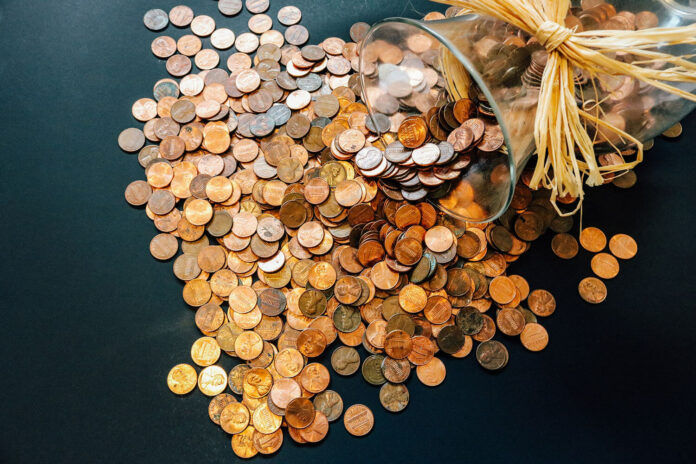
In early October, the police found about 50 million 1 peso coins in a warehouse in Barangay Laging Handa, Quezon City in the Philippines. The find caused a sensation as there has been a shortage of small change in the Southeast Asian country for years. That’s no surprise, one may think.
The joint operation of the police, customs, coastguard and the central bank of the Philippines (Bangko Sentral ng Pilipinas, BSP) took place in the presence of a lawyers and co-owners of the warehouse. The police displayed myriads of large bags full of coins worth about 840,000 euros, and the story received a lot of media coverage. We don’t know yet why someone filled an entire warehouse with such an enormous amount of small change.
The BSP explained that the coins come from different series. At the moment, random checks are being carried out to determine whether the coins are genuine or counterfeits. Following the discovery, the central bank called for legislative action to criminalise the hoarding of large quantities of coins.
Coin Hoarding in the Philippines: a Déjà Vu
In fact, the problem is not new. In 2012, the Philippines introduced a program to make hoarded coins enter circulation again. Initially, there was talk of success, but apparently it wasn’t enough. In the same year, Senator Manuel “Lito” Mercado Lapid demanded that coin hoarded be made a punishable offense. He had noticed that an unusually large number of coins per capita circulated in his country – or had stopped circulating to be precise. Even at that time, the BSP complained about a constant shortage of small change. Senator Lapid introduced a bill that stipulated that a person was only allowed to have as many coins as he or she was likely to need for everyday purposes. Those who violated the rule had to face up to one year in prison and pay a fine of 100,000 Philippine pesos for every 1,000 coins hoarded.
This seems to be in line with what the BSP is now demanding. Curiously, a look at the website of the House of Representatives of the Philippines shows that the House of Representatives passed exactly such a bill in a third reading on 17 June 2014. According to the bill, anyone hoarding coins could be punished with a fine of up to 300,000 pesos and 8 years in prison. Incidentally, the hoarded coins were supposed to be given to the treasury. And exceptions for charities and banks were planned. The central bank was supposed to draw up more precise rules regarding the number or weight of hoarded coins that are subject to the bill and regarding the distinctions that will be made between private persons, institutions or companies.
What Happened to the Bill?
So, in 2014 the ball was in the BSP’s court. Was the central bank not informed by the House of Representatives or did they fail to implement the rules to this day? CoinsWeekly asked the BSP for a statement and received an explanation that the bill introduced by Senator Serge Osmeña in the Senate as Bill 2452 was not passed as it did not find a majority. This means, the bill was never enacted. So it’s not surprising that the country can’t seem to get a grip on the shortage of small change. The next question will be whether a bill will be able to remedy the situation. But one step at a time.
Here you can find the statement on the passed bill on the website of the House of Representatives.
This is the website of the Bangko Sentral ng Pilipinas.
In this clip you can see the police showing the coin hoard.
In Sri Lanka, too, coins kept going missing. Richard Giedroyc explained in this article how different institutions of the country blamed each other for the situation.
Similar problems arose in India.




